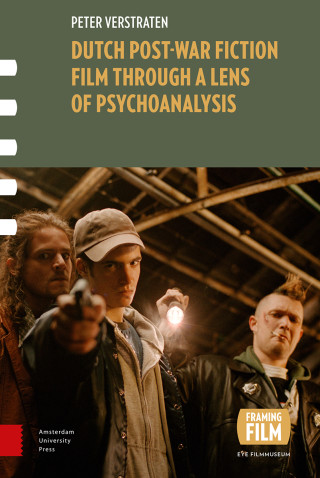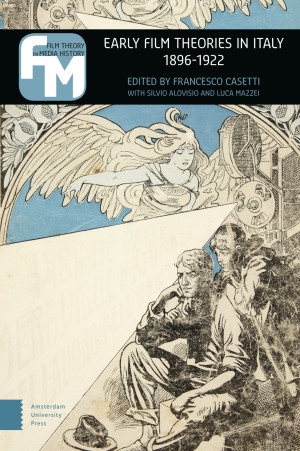Francesco Casetti, The Throb of the Cinematograph
Section 1. Cinema and Modern Life
Introduction (Francesco Casetti)
1. Edipi [Ettore della Porta], Cinematography
2. Giovanni Papini, The Philosophy of Cinematograph
3. Gaio [Adolfo Orvieto], Summertime Spectacles: The Cinema
4. Maffio Maffii, Why I love the Cinema
5. Giovanni Fossi, The Movie Theatre Audience
6. Crainquebille [Enrico Thovez], The Art of Celluloid
7. Ricciotto Canudo, The Triumph of the Cinema
8. Fausto Maria Martini, The Death of the Word
Section 2. Film in Transition
Introduction (Francesco Casetti)
9. Lucio D'Ambra, The Museum of the Fleeting Moment
10. Haydée [Ida Finzi], The Woman and the Cinema
11. Emanuele Toddi [Pietro Silvio Rivetta], Darkness and Intelligence
12. Matilde Serao, A Spectatrix is Speaking to You
13. Emilio Scaglione, Motion Pictures in Provincial Towns
14. Edoardo Coli, Cinematic Psychology
15. Silvio D'Amico, The Cinematograph Doesn't Exist
16. Giovanni Bertinetti, The Cinema, School of the Will and of Energy
17. Alberto Orsi, The Close-Up
18. Ernesto Quadrone, Cinedrama Titles
Section 3. Cinema at War
Introduction (Luca Mazzei)
19. Nino Salvaneschi, The War from Close-Up
20. Renato Giovannetti, That Poor Cinema
21. Renato Giovannetti, War Applied to Industry
22. Luigi Lucatelli, Families of Soldiers
23. g. pr. [Giuseppe Prezzolini], War and Cinema
24. Lucio D'Ambra, Max Linder Dies in the War
25. Saverio Procida, Cinema of War
Section 4. Politics, Morality, Education
Introduction (Silvio Alovisio)
26. Domenico Orano, The Cinema and Education
27. Romano Costetti, The Intuitive Method of Religious Education
28. Giovan Battista Avellone, The Cinema and Its Influence on the Education of the People
29. Francesco Orestano, Motion Pictures and Scholastic Education
30. Vittorio Emanuele Orlando, The People's Theatre
31. Angelina Maria Buracci, Cinema for the Cultivation of the Intellect
32. Ettore Fabietti, The Cinema as Teacher
Section 5. Film, Body, Mind
Introduction (Silvio Alovisio)
33. Pasquale Rossi, Collective Psychology
34. Mario Ponzo, Psychological Observations Made during Motion Picture Screenings
35. Giuseppe D'Abundo, Concerning the Effects of Film Viewing on Neurotic Individuals
36. Mariano Luigi Patrizi, The Ongoing Battle between Gesture and Word
37. Mario Umberto Masini and Giuseppe Vidoni, The Cinematograph in the Field of Mental Ilness and Criminality: Notes
38. Mario Ponzo, Cinema and Juvenile Delinquency
Section 6. The Aesthetic Side
Introduction (Luca Mazzei and Silvio Alovisio)
39. Corrado Ricci, Problems of Art: Expression and Movement in Sculpture
40. Sebastiano Arturo Luciani, Scenic Impressionism
41. Goffredo Bellonci, The Aesthetics of Cinema
42. Sebastiano Arturo Luciani, The Poetics of Cinema
43. Goffredo Bellonci, Manifesto for a Cinematic Revolution
44. Antonio Gramsci, Theatre and the Cinema
45. Filippo Tommaso Marinetti, Bruno Corra, Emilio Settimelli, Arnaldo Ginna, Giacomo Balla, and Remo Chiti, The Futurist Cinematography
46. Antonio Gramsci, In the Beginning Was Sex=
47. Emanuele Toddi [Pietro Silvio Rivetta], Rectangle-Film (25 x 19)
48. Anton Giulio Bragaglia, The Proscenium Arch of My Cinema
49. Lucio D'Ambra, My Views on the Cinematograph
50. Michele Biancale, Meditations in the Dark
Section 7. A Theory in a Narrative Form
Introduction (Luca Mazzei)
51. Roberto Tanfani, Colour Film
52. Luigia Cortesi, At the Cinema
53. Alberto Lumbroso, A Phantom Pursued
54. Aldo Borelli, Miopetti's Duel
55. Guido Gozzano, Pamela-Film
56. Pio Vanzi, Feature Film
57. Luciano Doria, Me, Riri, and Love in Slippers
58. Federigo Tozzi, A Cinematic Performance
59. Pier Maria Rosso di San Secondo, Life, a Glass Theatre
60. Guido Gozzano, The Shears' Reflection
Sources
Authors' Biographies
General Bibliography
Aknowledgements
Index
Editors' Biographies

